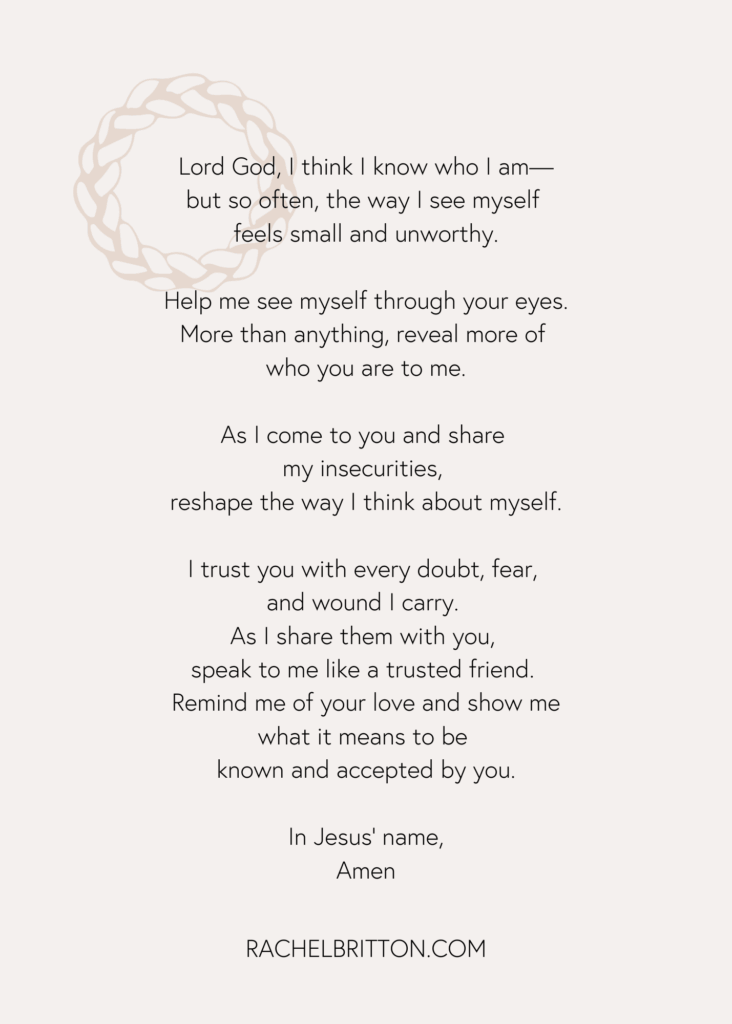Have you ever faced an opportunity, challenge or calling and questioned, “I’m not sure I’m up for this?” Maybe your past whispers reminders of your failures. Maybe the present screams that you are unqualified, ill-equipped or just don’t have the capacity.
I remember a moment like that myself when I realized God wanted me to step up and into a role. I wondered if I had what it took but also whether other people would accept me in the role. My first reaction wasn’t “let’s do this!” but wondering “can I do this?”
When God told Moses “So now, go. I am sending you to Pharaoh to bring my people the Israelites out of Egypt,” Moses first reaction was to question himself.
But Moses said to God, “Who am I that I should go to Pharaoh and bring the Israelites out of Egypt?” (Exodus 3:11)
The first words out of the mouth of Moses after God had told Moses he was sending him to free the people from slavery in Egypt were “Who am I…”
We should empathise with Moses, and most of us do. However, it seems that Moses can be berated for his lack of conviction to follow through with the command of God. After all, later Moses frustrated God to the point of anger with all his excuses as to why he was not suitable to do the task.
Often we take the lesson from this passage that we should have confidence and courage to follow through with what God is asking us to do, rather than focus on our insecurities.
But, I want us to pause for a moment with those three words “who am I…?” Because often we try to move on quicker than we are able. We try to convince ourselves that we shouldn’t question ourselves.
We have to remember that Moses was not a great leader at this point. That was all ahead of him. Instead, he was a man born into slavery but raised Egyptian.
Acts 7:22 tells us: Moses was educated in all the wisdom of the Egyptians and was powerful in speech and action.
Moses looked Egyptian, dressed as an Egyptian and most likely sounded Egyptian. See Exodus 2:17-19.
His fellow Hebrews saw him as a killer more than one of them: The man said, “Who made you ruler and judge over us? Are you thinking of killing me as you killed the Egyptian?” Exodus 2:14
Moses must have been heart-broken to be rejected by his own people. Moses was an outsider.
We, too, can often feel like an outsider, that we don’t fit in. Perhaps you come from a different background or culture and your fear is that you will never be accepted where you live or by the people who surround you. Even if people don’t mean to exclude you, feeling different can be painful.
Moses’ past also most likely reminded him of his failures. He committed what looked like a premeditated killing.
One day, after Moses had grown up, he went out to where his own people were and watched them at their hard labor. He saw an Egyptian beating a Hebrew, one of his own people. Looking this way and that and seeing no one, he killed the Egyptian and hid him in the sand. (Exodus 2:11-12).
I’m not sure how Moses’ act would stand up in court, but Pharaoh saw it as a punishable offence.
When Pharaoh heard of this, he tried to kill Moses, but Moses fled (Exodus 2:15).
Not only was Moses rejected by his people but now he was shunned by the very home in which he had been raised. It’s hard to imagine how Moses felt but I imagine that guilt, fear and insecurity tormented him.
So, when God wanted Moses to walk right back into the environment of hostility and rejection, I think he had good reason to ask ”Who am I…?” and the many questions and lack of confidence and humility he had about himself and what God expected of him.
You may have a history and past that you feel makes you unworthy and unacceptable. You may battle knowing whether you can walk into a situation that is hostile or relationships that have been scarred and are broken. You may have many questions about yourself that you want to ask God.
Saying “who am I…?” can be filled with pain, sadness, regret, unworthiness, shame and much more.
Like Moses, don’t be afraid to bring your insecurities to God. But, while you talk to God, ask God to reveal more of who he is to you. Because, Moses, the man who knew rejection and insecurity, is the one who spoke face to face with God, as with a friend.
When we speak with a true friend, we can be honest about ourselves. When we speak with a true friend, we can have no fear of rejection or judgment. My prayer is that we may all be able to have the same conversational relationship with God, who is our true friend, too.
Use this prayer to help you.
Pray


